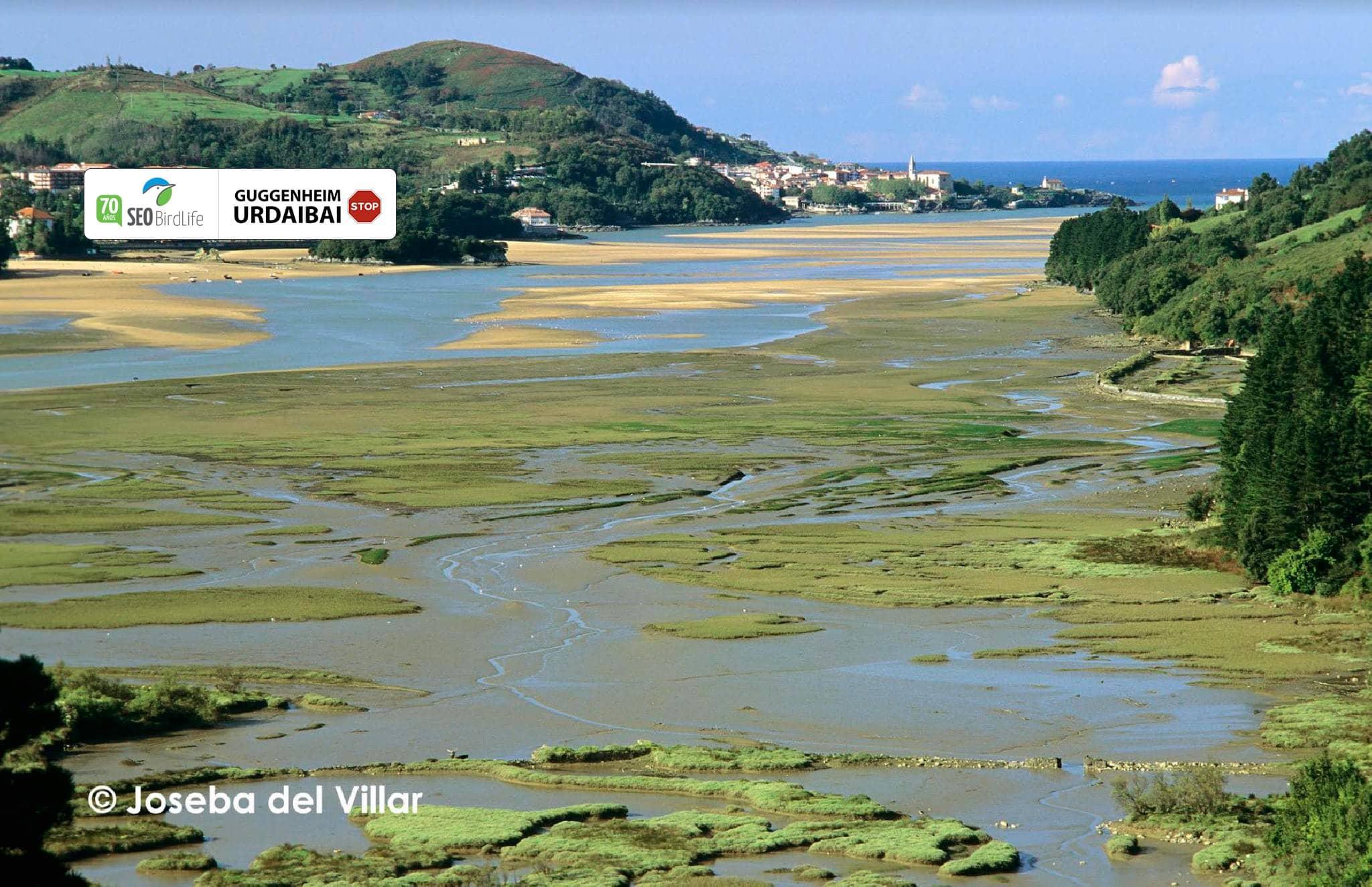The Urdaibai Biosphere Reserve, declared by UNESCO more than 39 years ago, is per se a living museum with landscape, biological, geological and historical cultural features of incalculable value. It is home to one of the best preserved estuaries in the north of the Iberian Peninsula, with numerous habitats and species of interest. Not for nothing has the mouth of the river Oka been declared a Special Protection Area for Birds, a Special Area of Conservation of the European Natura 2000 Network and since 1993 it has been included in the Ramsar Convention, an international intergovernmental treaty that provides the framework for the conservation and rational use of wetlands and their resources. It is a strategic estuary, not only for breeding birds, but also from the point of view of their migratory movements.
Despite the fact that it is already an area under great stress from tourism, the Basque authorities are promoting the project for this separate extension of the Guggenheim Museum Bilbao. To this end, they intend to build at two new sites which will be linked by a path and footbridges that will cross the most protected area. It is expected to be visited by 140,000 people during 4 months of the year.
This project has only been publicised in the media, but has never been agreed upon or evaluated in terms of its environmental and social impact. These visits would add to the impacts already suffered by this protected area. In fact, according to the report drawn up by renowned ornithologists in 2021 at the request of the Basque Government itself, disturbances caused by recreational activities are an important conservation problem for birds in the Urdaibai SPA.
At present, the main causes are walkers, sailing (boats and water sports) and the collection of invertebrates for bait. These and other types of disturbance often occur simultaneously over a reduced surface area, so that the birds lack alternative feeding and resting places, endangering the reproduction of some species or limiting their potential recolonisation.
Therefore, an increase in the number of visitors in the maximum protection area of Urdaibai is totally counterproductive to the conservation of the natural values of the Reserve, as is the siting of museum facilities in the heart of the estuary.
The intensification of human use of the area is the worst option given the fragility of these ecosystems. In this regard, it should be remembered that the main objective of the Special Areas of Conservation is to maintain a favourable conservation status of species and the habitats in which they live. To conserve, preserve or restore is the main premise. And all other activities must be subject to a rigorous report on the repercussions on the objectives of the site. The search for alternatives for other activities in other areas should follow the path set by European regulations SEO/BirdLife and the Citizens´Platform ‘Stop Guggenheim Urdaibai’ reiterate once again our opposition to a project that does not meet the needs of the citizens of the region or the prudent planning this protected area needs in terms of sustainability. What is more, this museum project would not comply with international, European, national and regional nature conservation legislation and, furthermore, has been rejected by a large part of the local population and conservationist, scientific and cultural associations in the Basque Country. If this project were to go ahead, it would aggravate the current process of deterioration of the conservation status of habitats and species in the estuary of the Urdaibai Biosphere Reserve. Furthermore, with an excessive influx of visitors, the whole region would suffer from mass tourism in an already saturated area, with negative consequences for its natural, cultural and social values.
We consider that the Solomon R. Guggenheim Foundation should withdraw the project sponsored by the Basque institutions with the help of Spain’s central Government. And at the same time, it is essential that it indicates to the institutions responsible for the management and conservation of the Urdaibai Biosphere Reserve that what should take precedence are coherent policies in accordance with the regulatory framework and the context of ecological transition, biodiversity conservation, adaptation to the climate crisis and the environmental sensitivity of the local and global population. Consensus on active policies based on public participation and 21st century governance is an absolute necessity.

